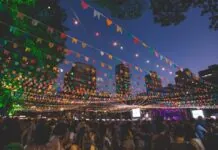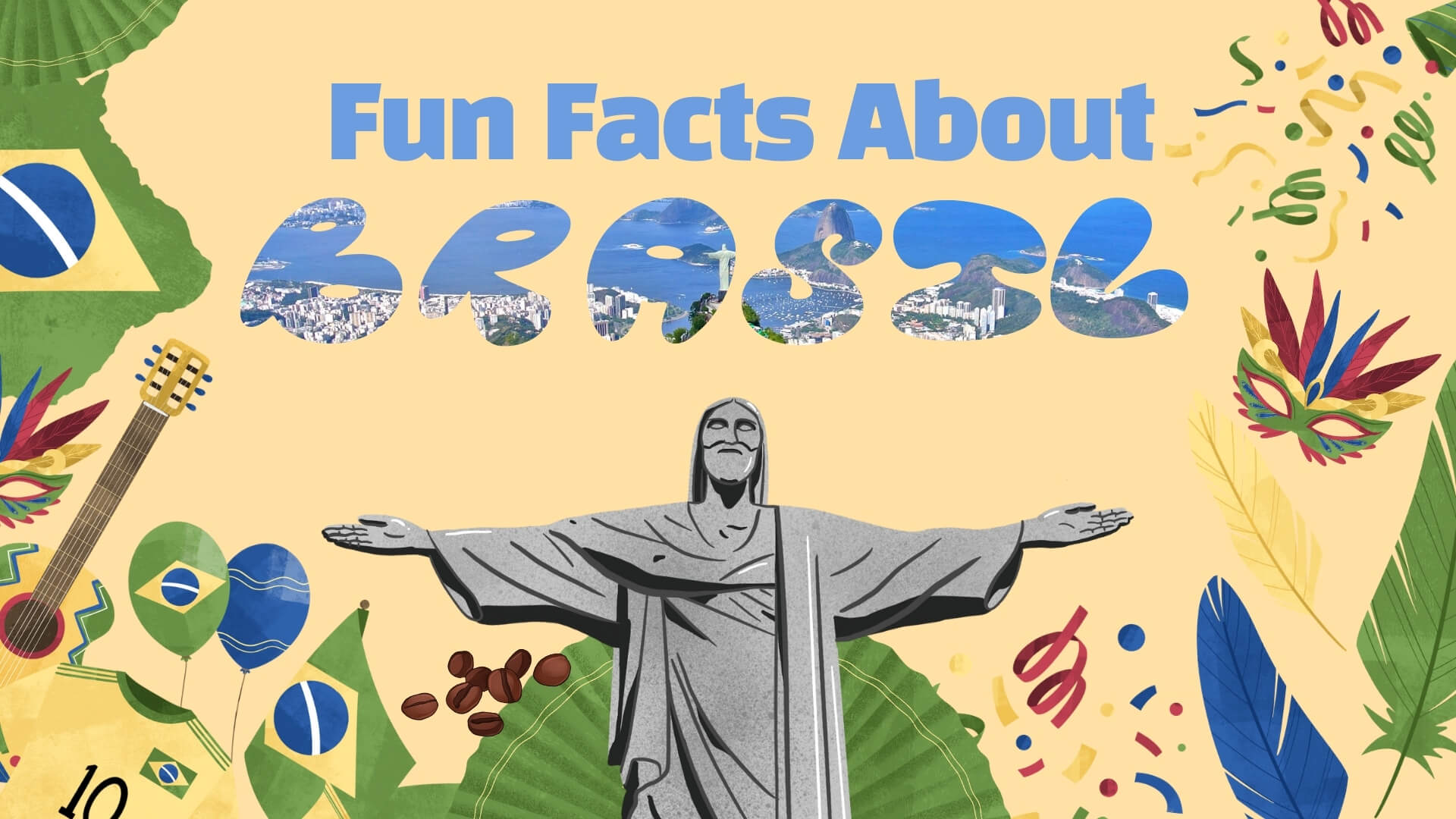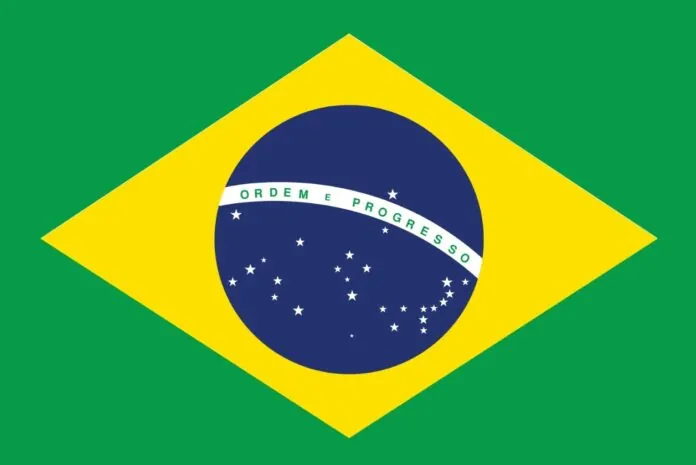
Brazil has many important holidays in 2025, including national events and cultural celebrations. Knowing the dates makes it easier to plan travel, rest, and family time.
Use this list to stay prepared and take full advantage of each occasion.
Let’s Check the Full List
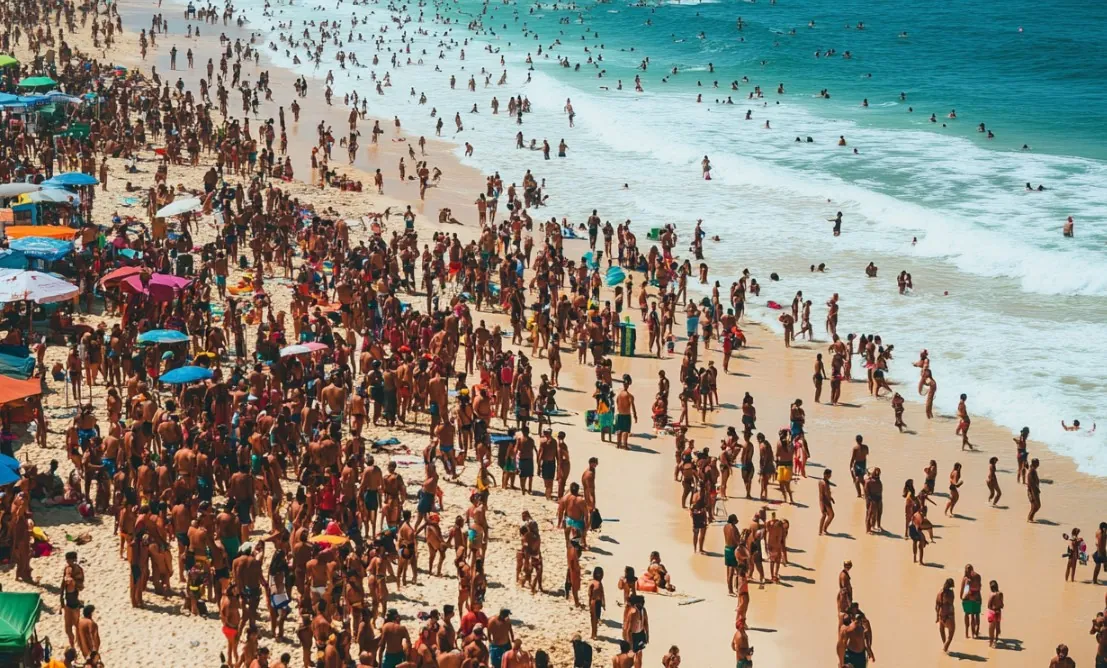
| Date | Day | Holiday Name | Type |
|---|---|---|---|
| January 1 | Wednesday | New Year’s Day | National Holiday |
| February 28 | Friday | Carnival Friday | Observance |
| March 1 | Saturday | Carnival Saturday | Observance |
| March 2 | Sunday | Carnival Sunday | Observance |
| March 3 | Monday | Carnival Monday | Government Holiday |
| March 4 | Tuesday | Carnival Tuesday | Government Holiday |
| March 5 | Wednesday | Carnival End (until 2pm) | Government Holiday |
| March 20 | Thursday | March Equinox | Seasonal Event |
| April 18 | Friday | Good Friday | National Holiday |
| April 20 | Sunday | Easter Sunday | Observance |
| April 21 | Monday | Tiradentes Day | National Holiday |
| May 1 | Thursday | Labor Day / May Day | National Holiday |
| May 11 | Sunday | Mother’s Day | Observance |
| June 12 | Thursday | Brazilian Valentine’s Day | Observance |
| June 19 | Thursday | Corpus Christi | Government Holiday |
| June 20 | Friday | June Solstice | Seasonal Event |
| August 10 | Sunday | Father’s Day | Observance |
| September 7 | Sunday | Independence Day | National Holiday |
| September 22 | Monday | September Equinox | Seasonal Event |
| October 12 | Sunday | Our Lady of Aparecida / Children’s Day | National Holiday |
| October 15 | Wednesday | Teacher’s Day | Observance |
| October 28 | Tuesday | Public Service Holiday | Government Holiday |
| November 2 | Sunday | All Souls’ Day | National Holiday |
| November 15 | Saturday | Republic Proclamation Day | National Holiday |
| November 20 | Thursday | Black Awareness Day | National Holiday |
| December 21 | Sunday | December Solstice | Seasonal Event |
| December 24 | Wednesday | Christmas Eve (from 2pm) | Government Holiday |
| December 25 | Thursday | Christmas Day | National Holiday |
| December 31 | Wednesday | New Year’s Eve (from 2pm) | Government Holiday |
Major National Holidays
National holidays in Brazil are a time for celebration, reflection, and connection.
Some holidays hold deep cultural or historical importance, while others offer opportunities for families to gather and create lasting memories.
New Year’s Day (January 1)
Marks the beginning of the year with fireworks, music, and celebrations across the country.
In cities like Rio de Janeiro, millions gather on beaches to welcome the year with rituals like offering flowers to the sea, a tradition tied to Afro-Brazilian culture.
It’s a day full of hope, gratitude, and fresh starts.
Independence Day (September 7)
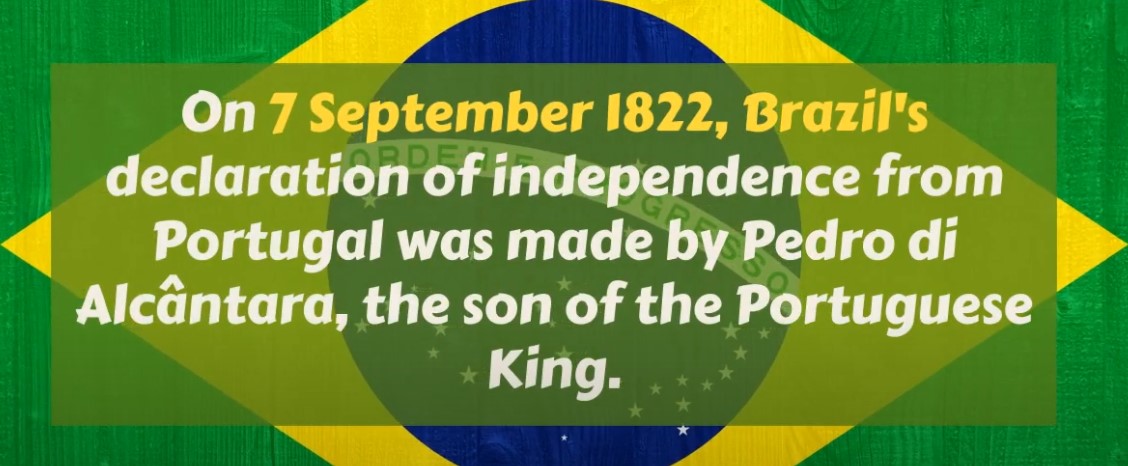
One of the most patriotic days on the calendar. It celebrates Brazil’s independence from Portugal in 1822.
Parades, speeches, and performances take place across the country, with Brasília hosting the largest military parade. The day reflects national pride and the journey toward sovereignty.
Tiradentes Day (April 21)
It honors Joaquim José da Silva Xavier, a national hero who fought for Brazil’s independence during the colonial period.
Known as Tiradentes, his sacrifice symbolizes the fight for freedom. This day serves as a reminder of Brazil’s revolutionary spirit and its path toward democracy.
Labor Day (May 1)
The event highlights the contributions of workers to the nation’s progress. While some celebrate with rallies and protests advocating for workers’ rights, others enjoy it as a day to relax with family.
It’s a mix of activism and leisure that underscores the importance of workers in building the country.
Children’s Day (October 12)
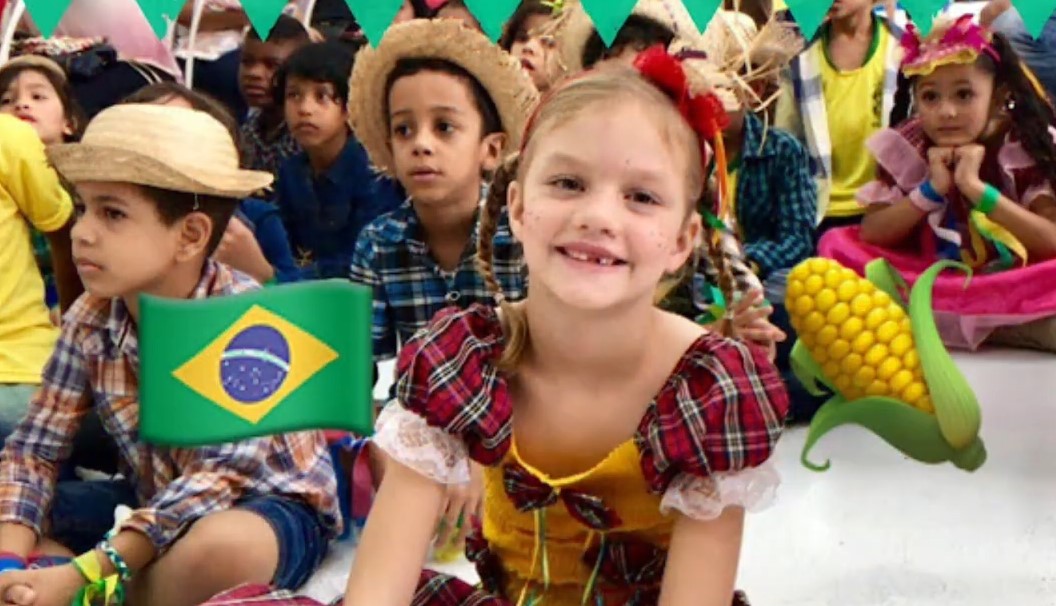
Also celebrated as Our Lady of Aparecida’s Day, merges religious devotion with family festivities. Kids receive gifts, and families spend the day together, while religious communities honor Brazil’s patron saint, Our Lady of Aparecida.
Republic Proclamation Day (November 15)
Commemorates the day Brazil transitioned from a monarchy to a republic in 1889.
While it doesn’t involve large-scale festivities, it’s a significant reminder of Brazil’s political evolution and independence.
Christmas Day (December 25)
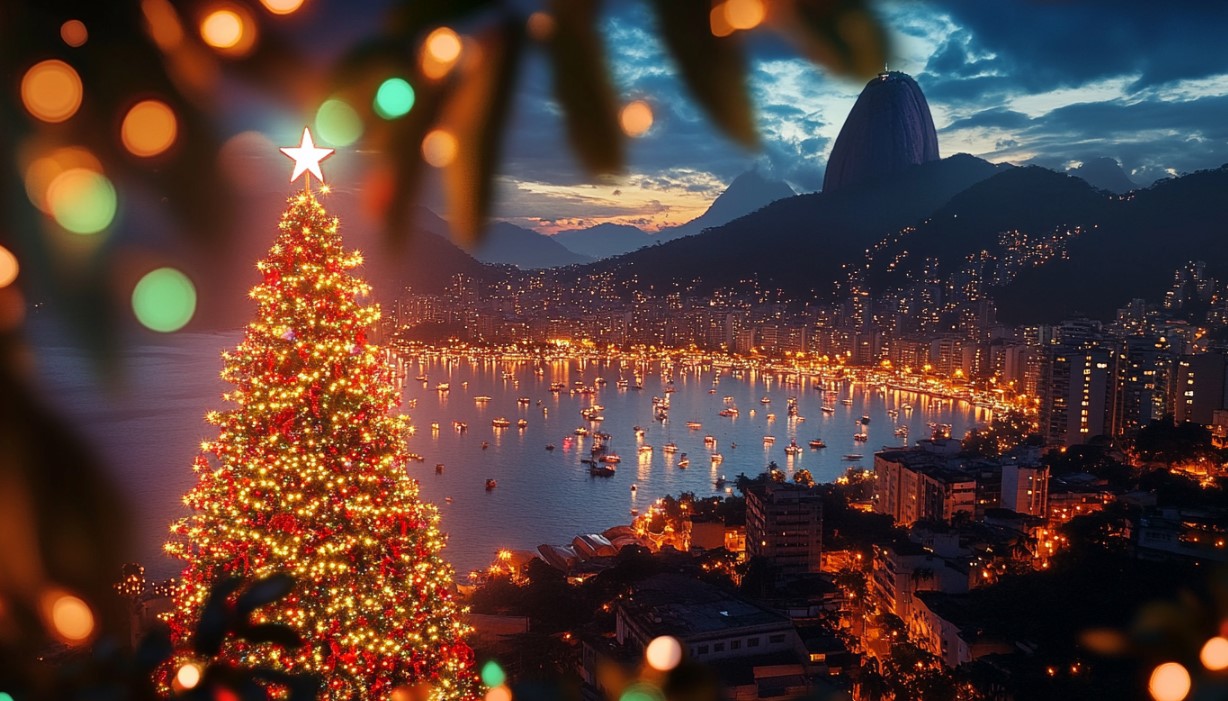
Families gather for large meals on Christmas Eve, often featuring traditional dishes like roasted turkey or bacalhau (salted codfish).
Midnight masses and exchanging gifts add to the joy. Decorations and nativity scenes adorn homes and public spaces, creating a festive atmosphere.
Carnival in Rio
Carnival in Rio de Janeiro is more than just a holiday.
Known as one of the biggest events in the world, Carnival turns Rio into a stage for incredible parades, music, and joy.
The event begins on Carnival Friday (February 28) and continues until Carnival Tuesday (March 4), marking the days before Lent.
While its roots are tied to religious traditions, Carnival has become a cultural phenomenon that showcases Brazil’s creativity and passion.
Samba schools in Rio spend months preparing for the highlight of the event—the grand parades at the Sambadrome.
Each parade features floats, costumes, and music that tell powerful stories about Brazilian culture and history.
Beyond the Sambadrome, the streets of Rio come alive with blocos—street parties that bring people together in celebration.
These gatherings are open to everyone, making Carnival an event that unites communities.
Religious Holidays and Observances
Religious holidays in Brazil bring people together to honor their faith and traditions.
- Good Friday (April 18) is a day when many people focus on quiet moments and attend church. It is common to avoid rich meals, with families choosing simpler dishes instead.
- Easter Sunday (April 20) is a happier occasion. Families come together to enjoy meals and share chocolate eggs, which children always look forward to.
- Corpus Christi (June 19) is marked by processions in many cities. People create colorful carpets on the streets using flowers, sawdust, and other materials, making the day special for communities.
- All Souls’ Day (November 2) is about remembering loved ones who have passed away. Families visit cemeteries to clean graves and leave flowers. It is a quiet day that many spend with family.
Unique Holidays You Might Not Know About
Some holidays in Brazil might not be as famous as Carnival or Christmas, but they hold their own special meaning and charm.
- Children’s Day (October 12) is a favorite for families. Kids look forward to receiving gifts, and many families plan outings or fun activities together. The day also honors Our Lady of Aparecida, the patron saint of Brazil. This combination of joy for children and devotion to faith makes it a meaningful day for people across the country.
- Black Awareness Day (November 20) highlights the history and contributions of Afro-Brazilian communities. The day serves as a time to honor African culture and reflect on the struggles and achievements of Black Brazilians. In many cities, cultural events, parades, and educational programs take place, creating an atmosphere of pride and unity.
- Teacher’s Day (October 15) is all about showing gratitude to educators. Schools often hold small celebrations, and students may give gifts or write notes to thank their teachers. While it isn’t a national holiday, it is widely observed and appreciated, highlighting the important role teachers play in shaping the future.
FAQs
What is the difference between a national holiday and a government holiday in Brazil?
National holidays are recognized across the entire country and usually involve businesses, schools, and government offices closing for the day. Government holidays, on the other hand, primarily apply to public sector workers, though private businesses may also choose to observe them depending on their location.
Are there any holidays in Brazil that are specific to certain regions or states?
Yes, some holidays are specific to certain states or regions. For example, Black Awareness Day (November 20) is observed in several states but not nationwide. Similarly, many cities and states have their own municipal holidays to celebrate local events or saints.
Do all businesses close during holidays in Brazil?
Not all businesses close during holidays, especially in tourist areas. Large retail stores, restaurants, and entertainment venues often remain open, particularly during holidays like Carnival and Christmas. However, government offices and most banks typically close on official holidays.
What are blocos, and how are they different from the main Carnival parades?
Blocos are informal street parties held during Carnival. Unlike the grand parades at the Sambadrome, blocos are open to everyone and take place in neighborhoods across the city. Each bloco has its own theme, music, and vibe, making them a more casual and accessible way to enjoy Carnival.
Are there any holidays that involve specific foods or traditional dishes?
Yes, many holidays in Brazil are associated with traditional foods. For example, bacalhau (salted codfish) is often served during Christmas and Easter. Feijoada, Brazil’s famous black bean stew, is popular during long weekends and family gatherings, especially around national holidays.
Do Brazilians celebrate Halloween?
While Halloween is not an official holiday in Brazil, it has gained popularity in recent years, especially among younger people and in schools that teach English. Some communities host parties, and schools often organize costume events, but it is not widely celebrated like traditional holidays.
Final Thoughts
Holidays in Brazil bring people together and create opportunities to enjoy time with family and friends. Each one tells a story, whether it is about cultural traditions, national pride, or shared celebrations.
Planning ahead for 2025 makes it easier to enjoy these special moments. Whether it is Carnival, Independence Day, or Christmas, every holiday is a chance to connect and make memories.

